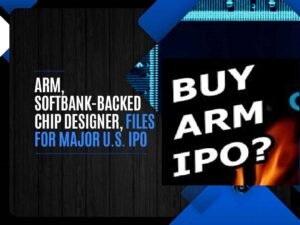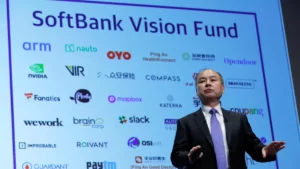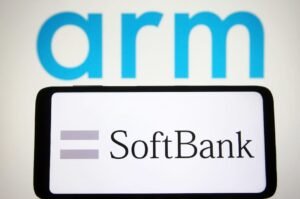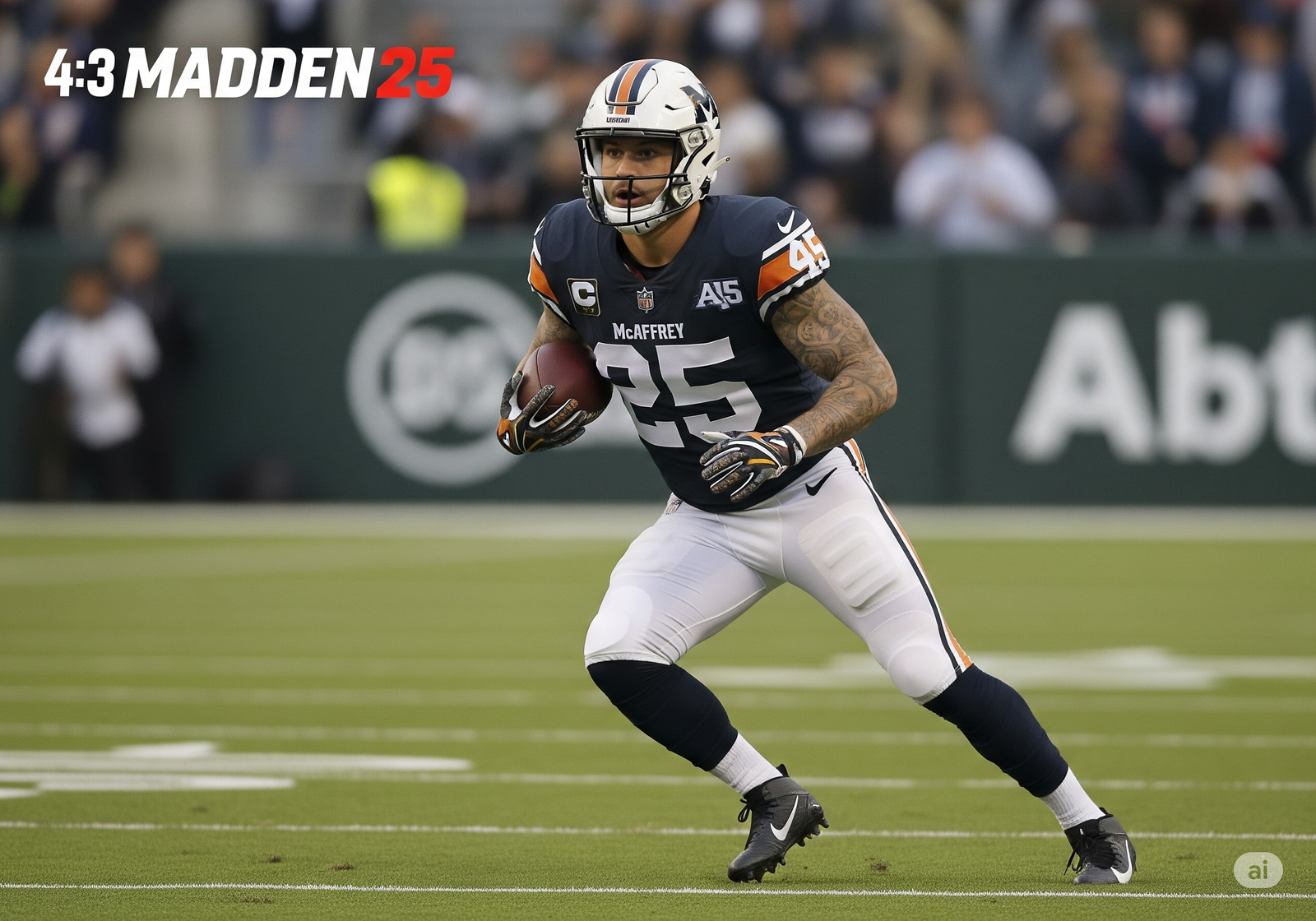The Nasdaq Global Select Market will list Arm’s shares under the ticker symbol “ARM.”
By raising $4.87 billion in the largest initial public offering of the year, SoftBank Group Corp. met its goals for Arm Holdings Plc. while restraining the urge to try for more.
It won’t be clear until Thursday when the chip designer’s shares begin trading whether Arm’s return to the public market goes smoothly and opens the door for other soon-to-be public firms. Bloomberg News estimates that Arm is worth roughly $54.5 billion at the IPO price.

Masayoshi Son, the founder, chairman, and CEO of SoftBank, indicated that he was unwilling to undercut that demand by establishing the price for the IPO, even if it meant leaving money on the table.
Some bankers and executives argued for a higher price during the last price-setting meeting on Wednesday, with some of the discussion focusing on whether $52 made sense, according to people with knowledge of the situation who asked to remain anonymous because the meeting was private. Son joined the conversation and decided on $51, claiming it wasn’t worth jeopardizing a strong debut for an extra $100 million or so in earnings, they claimed.
 Big Stakes
Big Stakes
Son’s strategy for the IPO reflects his ongoing long wager on Arm, whose processors are used in the majority of smartphones sold worldwide. The industry trend towards artificial intelligence processors and generative AI, which has helped Nvidia Corp. reach a market value of more than $1.1 trillion, will also be advantageous for Arm.
Arm was a joint venture that Acorn Computers, VLSI Technology, and what was then Apple Computer Inc. founded in 1990. From 1998 until 2016, when SoftBank bought the company for $32 billion, Arm was listed on the London Stock Exchange and Nasdaq.
SoftBank’s attempt to sell Arm to Nvidia for $40 billion in 2020 was unsuccessful. Customers of Arm were outraged by the action because they didn’t want the supplier of the core technology for the mobile phone industry to end up in the hands of just one person.
IPO Reversal
With that purchase off the table, Arm switched to an IPO, where it had previously sought a valuation of $60 billion to $70 billion, according to Bloomberg News.
Arm had initially planned to earn $8 billion to $10 billion through the offering, but that goal was scaled back, at least in part, as a result of SoftBank’s decision to purchase the nearly 25% interest held by its Vision Fund in a deal that, according to Arm’s papers, valued Arm at more than $64 billion.

Additionally, SoftBank made the decision to retain a larger chunk of Arm’s shares, leaving only 10% for investors, including some of Arm’s largest clients. Arm reserved more than $700 million of the equity for Intel Corp. as part of the IPO. Underwriters may purchase up to an additional 7 million shares, including those of Apple Inc., Nvidia Corp., Samsung Electronics Co., and Taiwan Semiconductor Manufacturing Co.
The IPO surpasses the $4.37 billion debut by Johnson & Johnson consumer health spinoff Kenvue Inc. to become the largest in history this year. The Arm IPO may also serve as a spark for scores of software firms and other businesses whose intentions to list in the US have stalled out during the deepest and longest listing slump since the financial crisis of 2009.
Instacart Inc., a company that delivers groceries online, Klaviyo, a company that automates marketing and data collection, VNG Ltd., a startup in Vietnam, and Birkenstock Holding Ltd., a company that makes shoes, have all filed to go public.
Since electric vehicle manufacturer Rivian Automotive Inc.’s $13.7 billion offering in October 2021, Arm’s listing is the biggest in the US. The IPO is expected to be among the biggest in the history of the internet sector, but it will still be far behind the two greatest offerings—the $16 billion debut by Meta Platforms Inc. in 2012 and the $25 billion sale by Alibaba Group Holding Ltd. in 2014.
Despite being present in practically all smartphones, Arm’s technology is not widely understood by consumers. Arm provides the schematics required to create microprocessors and licenses the instruction set technology that specifies how software interacts with those devices. Arm’s technology is widely used on smartphones, where battery life is crucial, because to its power economy.
The Chip Slump
The Philadelphia Semiconductor Index has increased by 41% this year as a result of the AI craze driving a surge in semiconductor stocks. However, the global chip sector is still struggling with a sales decline that has been made worse by an abundance of inventory.
According to company reports, Arm’s revenue decreased by around 1% to $2.68 billion for the fiscal year that ended on March 31. In fiscal year 2022, the company’s net income increased to $549 million from $388 million; however, it decreased this year to $524 million.
Leading Arm’s offering are Barclays Plc, Goldman Sachs Group Inc., JPMorgan Chase & Co., and Mizuho Financial Group Inc. SoftBank-supported Raine Securities LLC is serving as the IPO’s financial adviser in addition.







